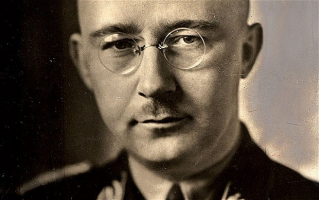Top 5 Interesting Facts about Hermann Goering
Hermann Wilhelm Goering (January 12, 1893 - October 15, 1946) was a German politician, military commander, and war criminal. He was a prominent member of the ... read more...Nazi Party, which controlled Germany from 1933 until 1945. Here are the 5 interesting facts about Hermann Goering.
-
One of the interesting facts about Hermann Goering is that he was born and raised in an aristocratic family. On January 12, 1893, Goering was born at the Marienbad Sanatorium in Rosenheim, Bavaria. His father, former cavalry officer Heinrich Ernst Göring (31 October 1839 - 7 December 1913), was the first governor-general of German southwest Africa (modern-day Namibia). Heinrich was the father of three children from a previous marriage. Heinrich's second wife, Franziska Tiefenbrunn (1859-15 July 1943), bore him the fourth of five children. Karl, Olga, and Paula were Goering's older siblings, and Albert was his younger brother. His father was serving as consul general in Haiti at the time of his birth, and his mother had gone home momentarily to give birth. She left the six-week-old infant with a friend in Bavaria and did not see the child again until she and Heinrich returned to Germany three years later.
Goering, who had always wanted to be a soldier, grew up playing with toy soldiers and dressing up in a Boer costume his father had given him. At the age of eleven, he was transferred to boarding school, where the food was inadequate and the discipline was rigorous. He sold a violin to pay for his train ticket home, then hid in his bed, pretending to be ill, until he was assured he didn't have to return. He kept playing war games, pretending to besiege the castle Veldenstein and studying Teutonic legends and sagas. He became a mountaineer, climbing summits in Germany, the Mont Blanc range, and the Austrian Alps. He was transferred to a military institution in Berlin Lichterfelde at the age of 16, where he graduated with honors.
In 1912, Goering joined the Prussian Army's Prince Wilhelm Regiment (112th Infantry, Garrison: Mülhausen). His mother had a falling out with Epenstein the following year. The family was compelled to leave Veldenstein and go to Munich, where Göring's father died soon after. When World War I broke out in August 1914, Göring's regiment was stationed in Mülhausen.
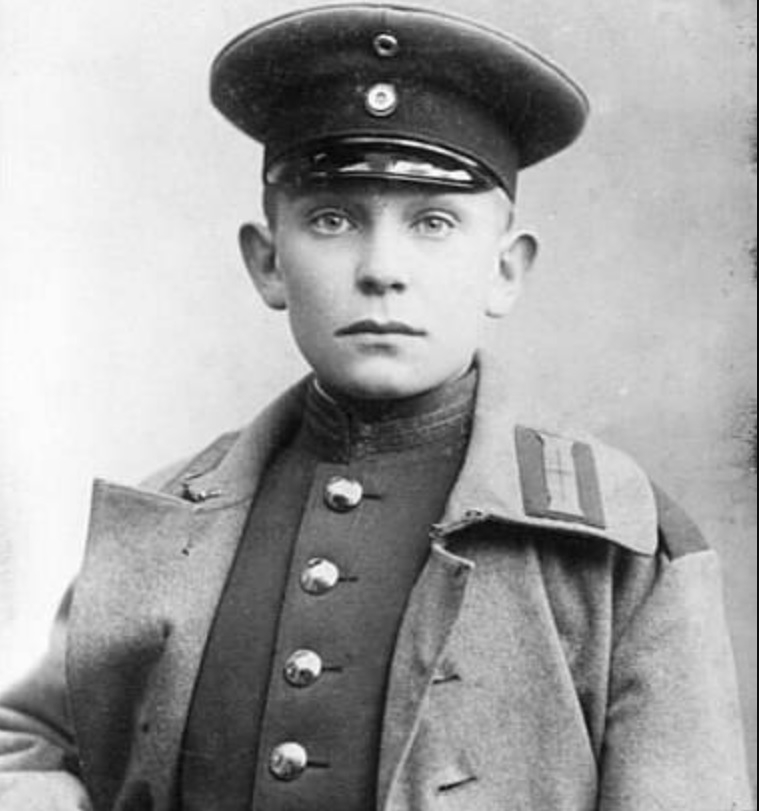
Goering in 1907 -Photo: allthatsinteresting.com 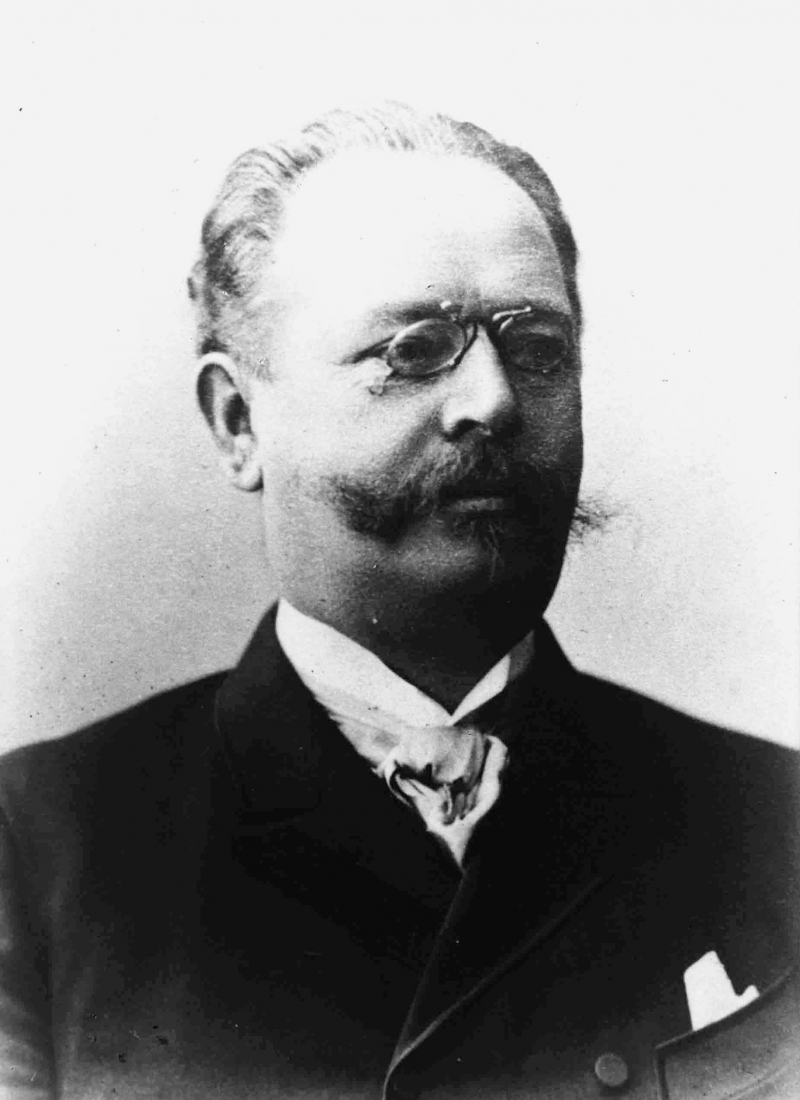
Heinrich Ernst Göring, his father -Photo: en.wikipedia.org -
Hermann Goering was a fighter pilot in World War I. Goering served with his infantry regiment in the first year of World War I in the vicinity of Mülhausen, a garrison town less than 2 km from the French border. Later that year, Goering, who had formally transferred himself, flew in Feldflieger Abteilung 25 (FFA 25) as Loerzer's observer. After being found, he was given a sentence of three weeks in a barracks, although the sentence was never carried out. Goering's affiliation with Loerzer had been made official by the time it was meant to be imposed. They were given FFA 25 in the Fifth Army of the Crown Prince as a unit. They carried out bombing and reconnaissance flights, for which the Crown Prince awarded Göring and Loerzer the first-class Iron Cross.
Goering was assigned to Jagdstaffel 5 after finishing the pilot training program. He needed almost a year to recuperate from a serious hip injury sustained during aerial combat. In February 1917, he was then moved to the Loerzer-commanded Jagdstaffel 26. Up until May, when he was given command of Jagdstaffel 27, he continued to amass air victories. He proceeded to achieve triumphs when serving with Jastas 5, 26, and 27. He also got the Zähringer Lion with swords, the Friedrich Order, the House Order of Hohenzollern with swords third class, and lastly, in May 1918, the coveted Pour le Mérite. These awards were in addition to his Iron Crosses. Hermann Dahlmann, who was acquainted with both men, claimed that Göring had Loerzer advocate for the award. He won 22 battles by the war's end.
Manfred von Richthofen's replacement, Wilhelm Reinhard, passed away on July 7th, 1918, and Goering became the new leader of Jagdgeschwader 1, the "Flying Circus". The guys in his squadron disliked him because of his haughtiness. Goering received many orders to withdraw his squadron during the closing stages of the war, first to Tellancourt Airdrome and later to Darmstadt. He was once told to give the plane to the Allies, but he refused. To prevent their aircraft from falling into enemy hands, many of his pilots purposefully made forced landings.
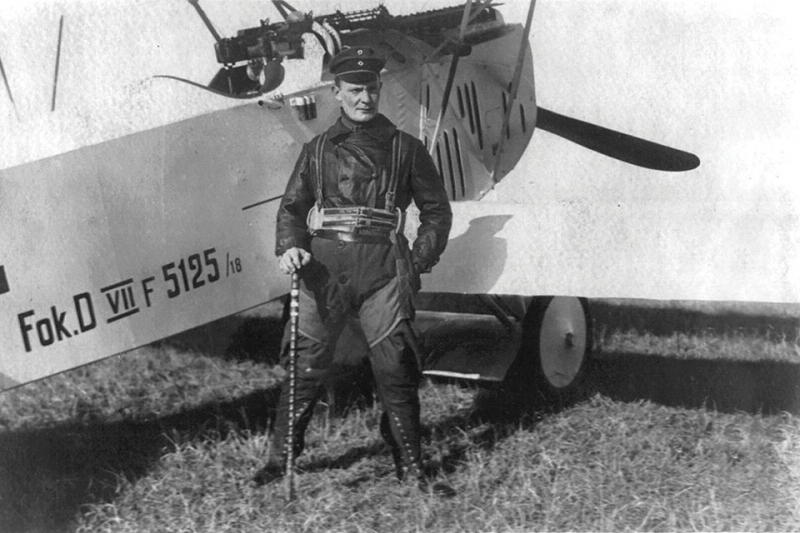
historynet.com 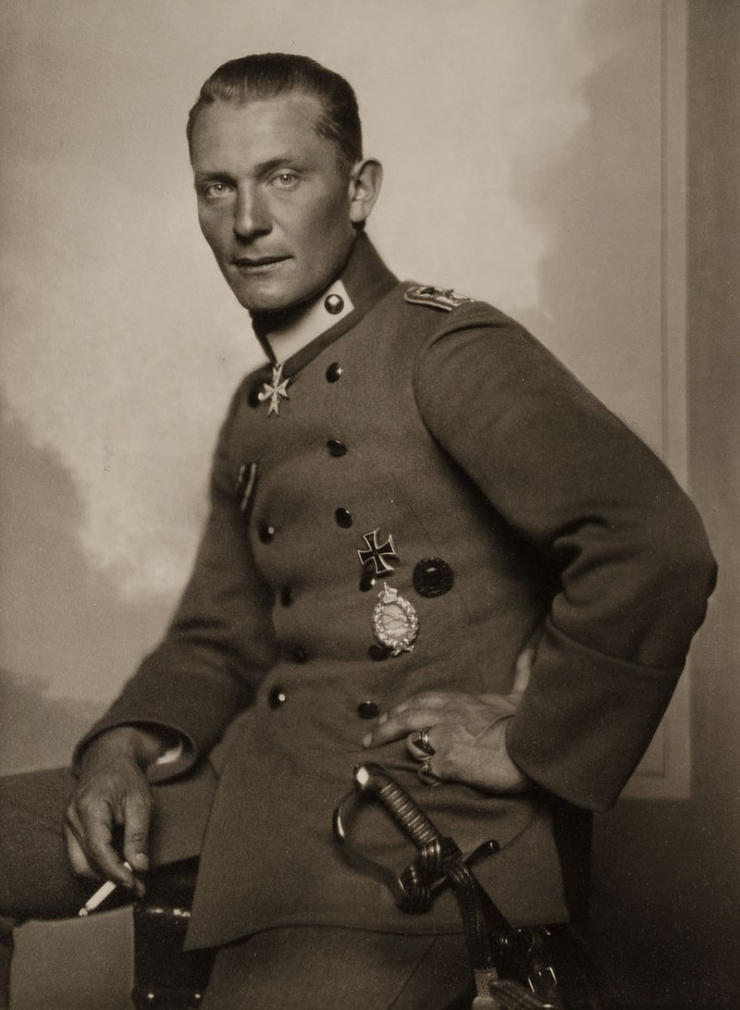
encyclopedia.1914-1918-online.net -
Hitler insisted on pressing on despite concerns from Göring and other senior officers that Germany was not yet prepared for war. Hitler nominated Göring as the head of a new, six-person Council of Ministers for Defense of the Reich on August 30, 1939, just before the Second World War started. This group was established to serve as a war cabinet. On September 1, 1939, at first light, the invasion of Poland, the war's first battle, began. Hitler appointed Göring to take over as Führer of all of Germany later in the day while speaking in the Reichstag. Big German victories came quickly one after the other. The Polish Air Force was subdued within a week with the aid of the Luftwaffe. Important airfields were taken over by the Fallschirmjäger in Norway and Fort Eben-Emael was taken over in Belgium. The Battles of the Netherlands, Belgium, and France in May 1940 featured significant contributions from Göring's Luftwaffe.
Hitler gave Göring the Grand Cross of the Iron Cross for his effective leadership after France had fallen. Hitler elevated Göring to the position of Reich Marshal of the Greater German Reich during the 1940 Field Marshal Ceremony, elevating him over all other military field marshals, including those of the Luftwaffe. Up until the end of the war, he was Germany's highest-ranking soldier as a result of his promotion. As the commander in chief of the Luftwaffe, Göring had already been awarded the Knight's Cross of the Iron Cross on September 30, 1939.
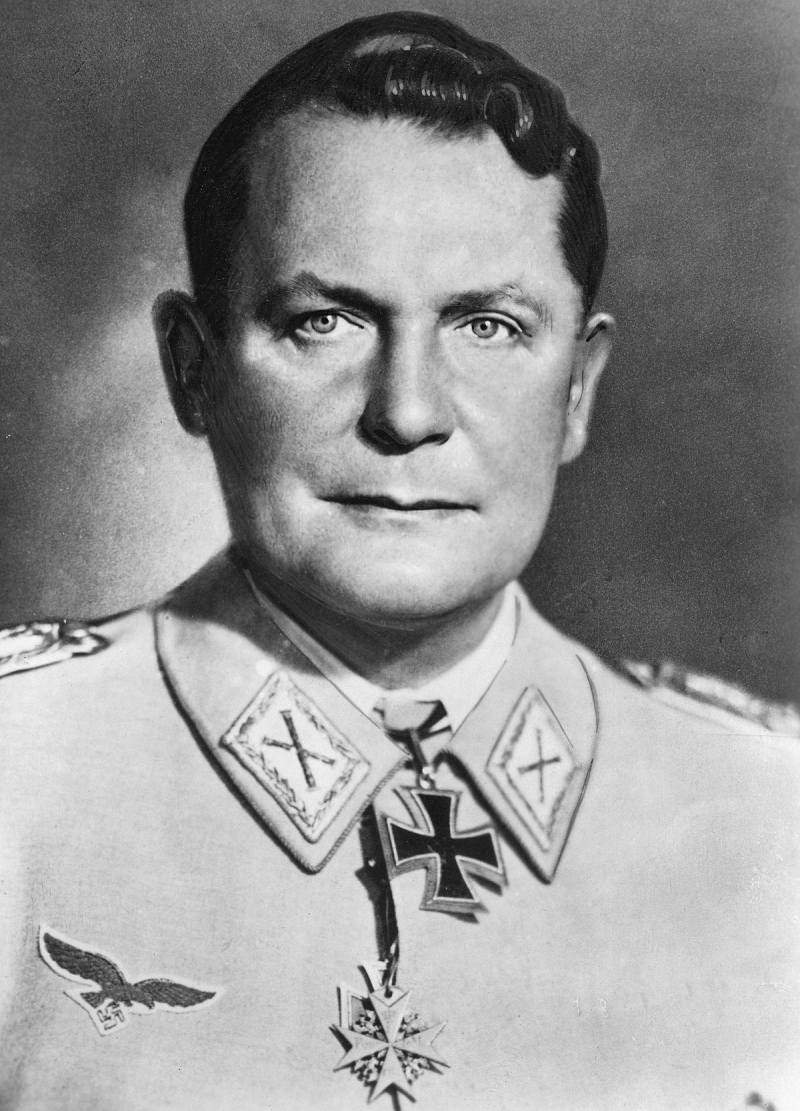
commons.wikimedia.org 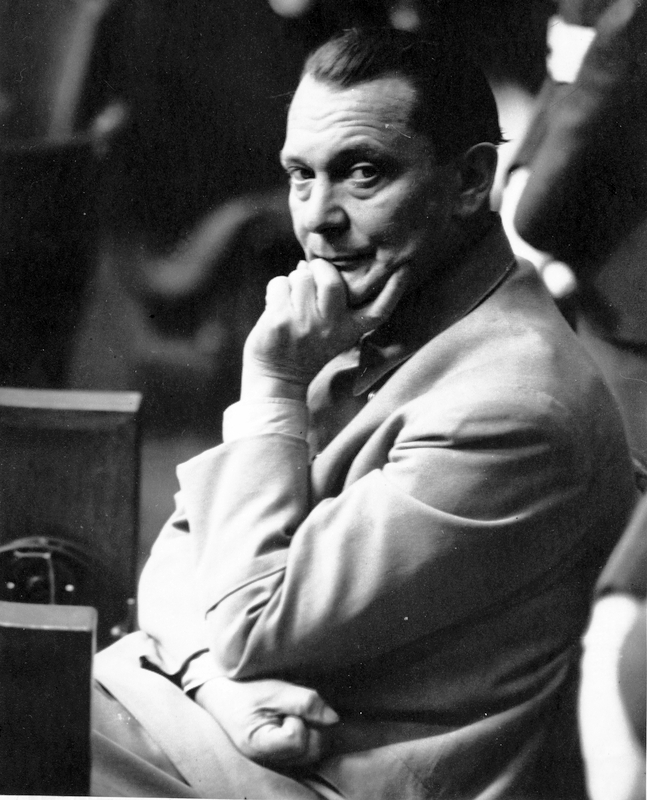
en.wikipedia.org -
One of the interesting facts about Hermann Goering is that he was dismissed from the Nazi party. Goering had reached the peak of his authority and power by 1941. After the Luftwaffe failed to stop the Allied bombardment of German towns and the resupply of encircled Axis forces in Stalingrad, Goering's standing with Hitler and the German public deteriorated as the Second World War went on. Around that time, Goering began to further distance himself from military and political concerns in order to focus on gathering goods and artwork, much of which was taken from Jewish Holocaust victims.
As the Soviets approached Berlin, Hitler's efforts to organize the city's defense proved increasingly fruitless. His final birthday, on 20 April 1945, was the occasion for many prominent Nazis, including Göring, to depart the Führerbunker in Berlin. By this time, Goering's hunting lodge Carinhall had been evacuated, the building had been destroyed, and the art treasures had been relocated to Berchtesgaden and elsewhere. Goering landed at his Obersalzberg house on the same day that Hitler, in a lengthy rant against his generals, officially confessed that the war was lost and that he meant to stay in Berlin until the end and then commit suicide. He also said that Göring was in a better position to negotiate a peace treaty.
On 22 April 1945, after learning that Hitler intended to commit suicide, Goering sent Hitler a telegram requesting permission to assume control of the Reich. Hitler considered Goering's request to be an act of treason and removed him from all positions, dismissed him from the party, and ordered his arrest.
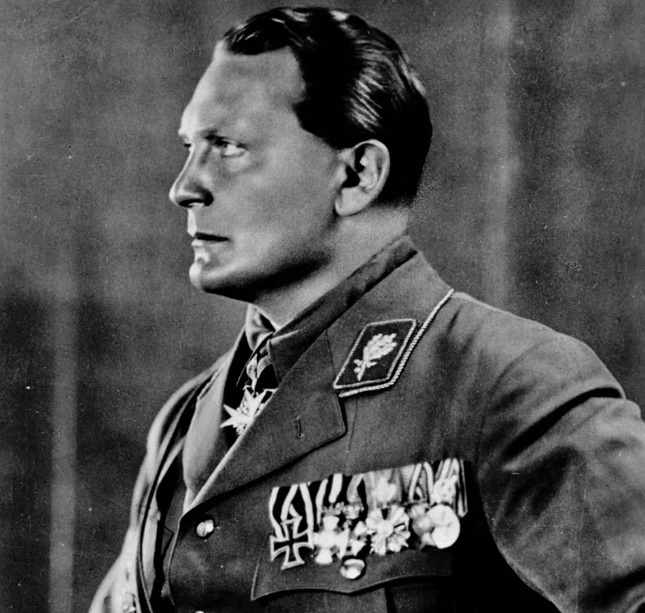
britannica.com 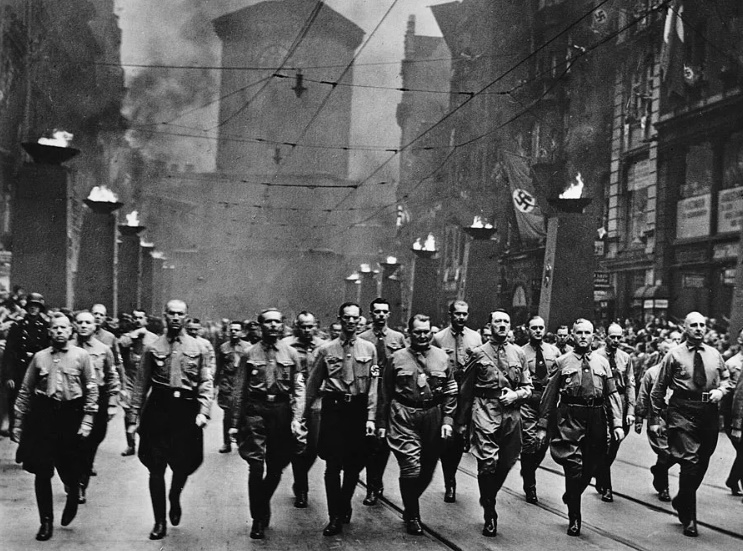
britannica.com -
One of the interesting facts about Hermann Goering is that he was convicted as a War Criminal. After Reich President (former Admiral) Karl Dönitz, Goering was the second-highest official to be convicted at Nuremberg. The prosecution filed an indictment with four counts, including conspiracy, waging an aggressive war, war crimes (such as the theft of artwork and other property and its removal to Germany), and crimes against humanity (such as the disappearance of political and other opponents under the Nacht und Nebel decree), torture, and ill-treatment of prisoners of war, as well as the killing and enslavement of civilians, including what was at the time estimated to be 5,700,000 Jews.
The prosecution exhibited films of concentration camps and other horrors on multiple occasions during the trial. The contents of the films were disturbing to everyone present, including Goering who stated they had to be manufactured. Witnesses such as Paul Körner and Erhard Milch attempted to paint Goering as a calm moderate. Milch claimed that opposing Hitler or disobeying his commands was impossible because it would have meant death for oneself and one's family. He gave evasive, complicated responses to straightforward queries and had credible explanations for all of his wartime acts. He utilized the witness stand to expound on his personal role in the Reich, aiming to portray himself as a peacemaker and diplomat before the onset of the war.
On all four counts, Goering was found guilty and condemned to death by hanging. Goering filed an appeal, requesting that he be shot as a soldier rather than hanged as a common criminal, but the court denied his request. He took a potassium cyanide capsule the night before he was to be hanged.
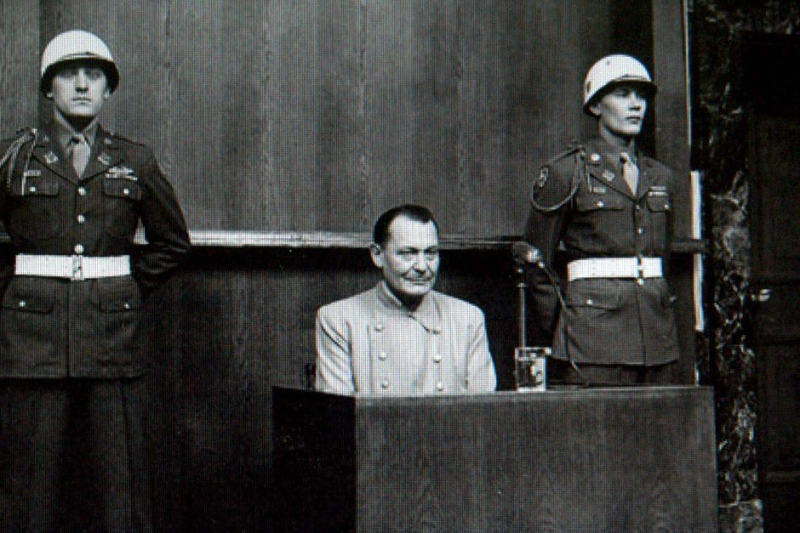
abc.net.au 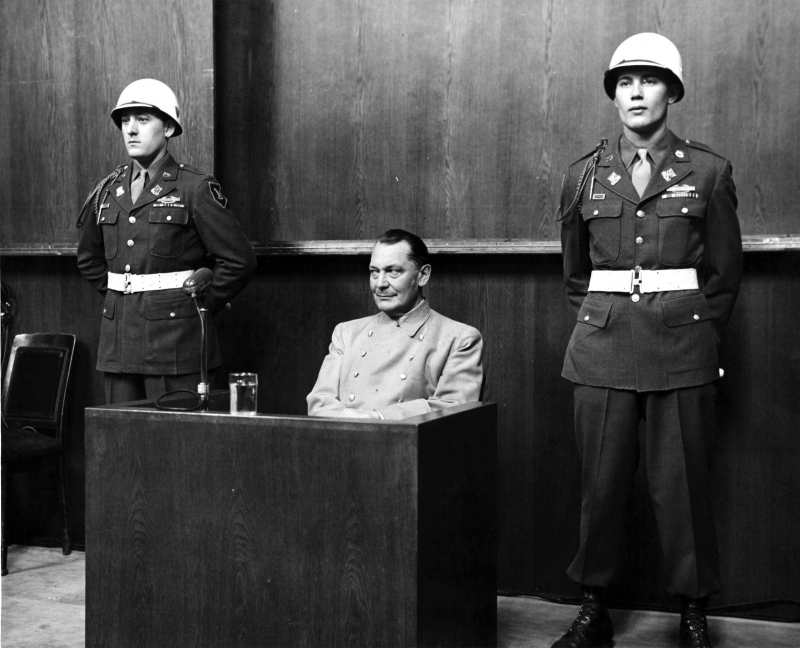
knowyourmeme.com























